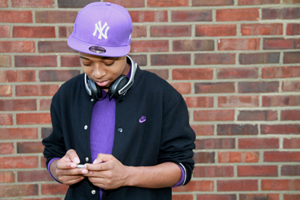Listen to Us and Don’t Assume
Do you assume that only one message will do for young people?
Does the appearance of a young person tell you what to think about them?

Assumptions are quickly made about Muslims:

The Question Box
One useful tool is the anonymous question box, described by Jo Sell of the Alternatives Education Team in Newham. ‘Every student in the class gets a piece of paper and has to put it in the question box, whether they have written a question on it or not. This makes sure that everyone has a chance to participate while remaining anonymous and without being singled out as someone who asked a question. The students can ask any questions they feel they want to and I will answer, unless it is inappropriate. This method helps even the shyest student, and enables the most difficult questions to be asked without embarrassment.’
Young people of faith often feel that the unspoken assumption of RSE materials and approaches is that they will soon be sexually active, and some resent this assumption. Such young people may feel included if they are reassured that for some of them this is ‘not for now’ but is still important, as it is the only time they may be formally taught about such things.
[1] In Young British Muslims and relationships. Musab Younis; Muslim Youth Helpline. 2010 available at http://www.myh.org.uk/information?id=9
